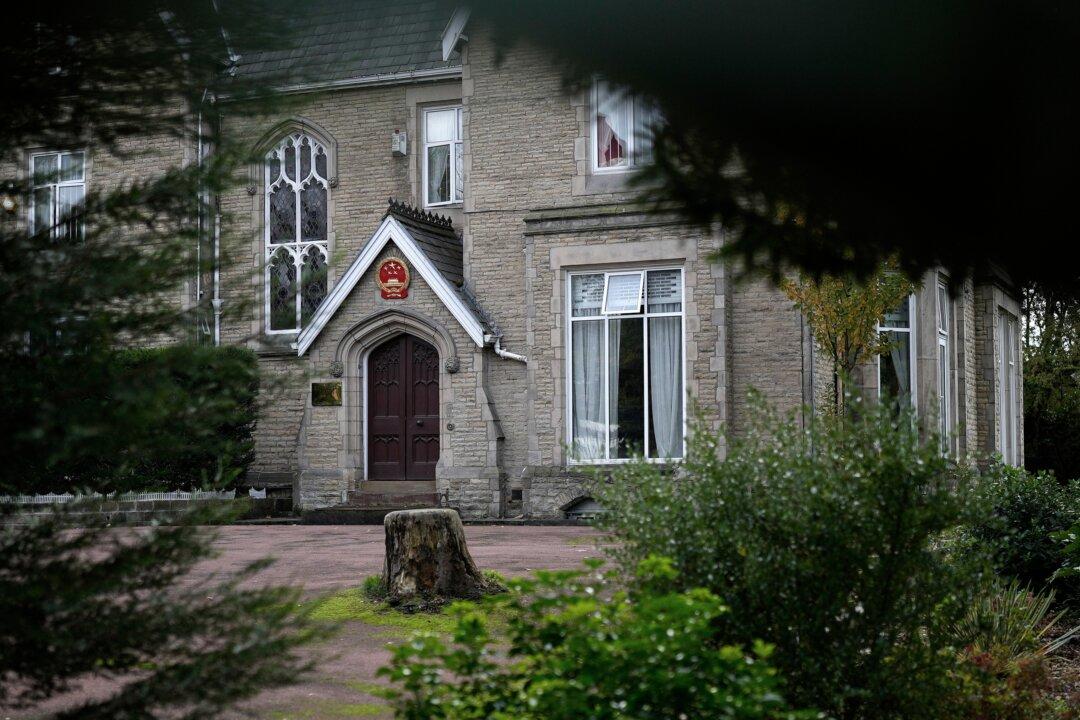The Chinese embassy in London issued a threat to the UK government on Thursday as Chinese diplomats may be expelled over the alleged assault of a Hong Kong protester at the Consulate General in Manchester.
In a YouTube video titled “Online Press Conference on the Violent Harassment of the Chinese Consulate General in Manchester,” Chargé d’affaires Yang Xiaoguan said, “protecting shelter to the Hong Kong independent elements will only, in the end, bring disaster to Britain.”





